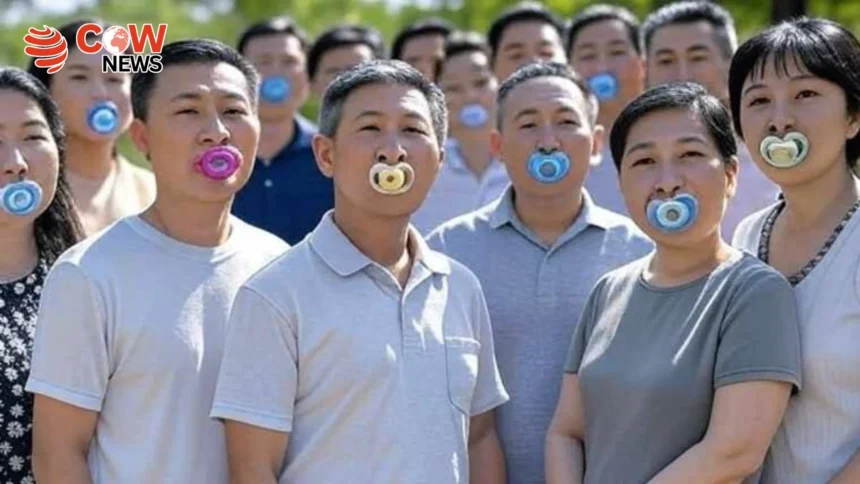Beijing( The COW News Digital) In a surprising lifestyle shift, young adults in China are increasingly turning to baby pacifiers as a way to cope with stress, anxiety, and sleep problems — a trend that has set social media abuzz and puzzled experts worldwide.
According to international media reports, this unusual coping mechanism — traditionally associated with infants — has now gained massive popularity among Chinese youth. Adult pacifiers are being sold for anywhere between 10 to 500 yuan, with online marketplaces flooded with colorful, customized versions. Some sellers have reported selling thousands of units, capitalizing on this unexpected craze.
The trend is largely driven by claims that using a pacifier can help reduce stress, promote better sleep, and evoke feelings of comfort similar to childhood. Many young users openly share their experiences on platforms like Weibo and Douyin, saying that pacifiers make them feel calmer during work and help them “switch off” from daily pressures.
Psychologists in China explain this behavior through the concept of the “Regression Phenomenon” — a psychological response where individuals facing intense stress or unresolved problems subconsciously revert to earlier developmental stages. In this case, the pacifier becomes a symbol of safety, security, and emotional relief.
However, the trend is not without risks. Dental experts have issued warnings about potential health consequences. Dr. Tang Kaomen, a dentist at Sichuan University’s Huaxi College of Stomatology, cautioned that the prolonged use of pacifiers by adults could lead to Temporomandibular Joint Disorder (TMJ Disorder). Symptoms can include jaw pain, clicking sounds, and even difficulty opening the mouth.
Social media reactions have been mixed. While some netizens find the trend harmless and even relatable, others have criticized it as an unhealthy coping mechanism. “It’s strange but somehow comforting,” wrote one user. Another questioned, “If we need pacifiers to survive modern life, what does that say about our society?”
Reports indicate that pacifiers for adults are now a booming niche market in China’s e-commerce sector. Retailers are offering various designs, from plain silicone models to ornate, jewel-studded versions aimed at collectors.
As the debate continues, health experts urge moderation, warning that while pacifiers may offer short-term comfort, they cannot replace professional therapy, healthy coping strategies, or lifestyle changes. Whether this is a fleeting fad or a lasting cultural phenomenon remains to be seen — but one thing is clear: China’s pacifier craze has sparked a global conversation about stress, comfort, and the coping mechanisms of modern youth.







